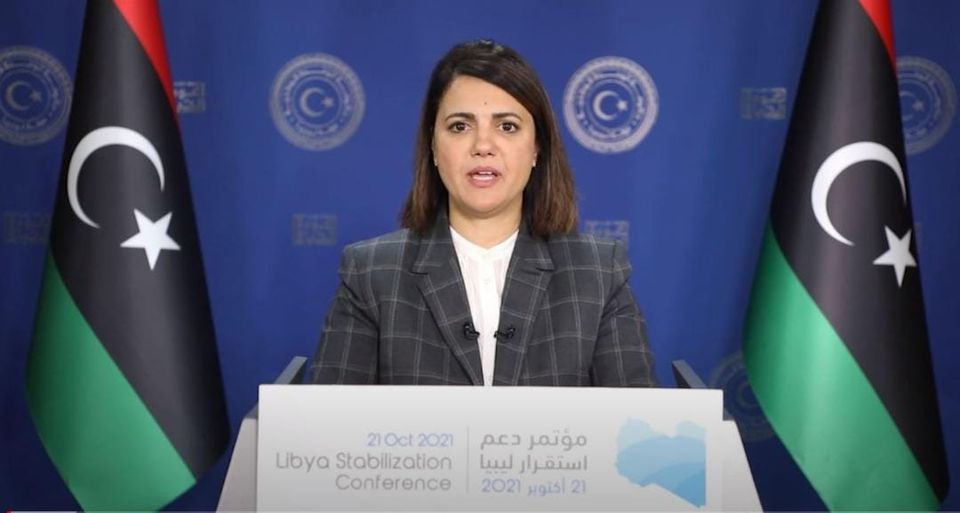The Minister of Foreign Affairs of the Libyan National Unity Government, Najla Al-Manqoush, announced the holding of an international ministerial conference for the initiative to stabilize Libya in the capital, Tripoli, next Thursday, corresponding to October 21, and indicated in a video speech yesterday evening, Sunday, that the initiative will focus on two tracks: security and economic.
Al-Manqoush added - in her speech published by the Libyan Ministry of Foreign Affairs on its website and on its pages on social media - that the initiative aims to make Libya an arena for positive economic competition, and also aims to ensure the optimal implementation of UN resolutions, especially Security Council resolutions 2570 and 2571, in addition to Berlin 1 and Berlin 2 conferences on Libya.
In her speech, Al-Manqoush indicated that the security track is based on supporting the efforts of the Joint Military Committee (5 + 5), unifying the military institution under one command, dismantling and merging armed formations that are not involved in terrorist and criminal acts, and rehabilitating them on the security and civil levels.
The security track also includes the withdrawal of all mercenaries, foreign fighters and foreign forces whose continued presence poses a threat, not only to Libya but to the entire region, as she put it.
Regarding the economic track, Al-Manqoush said that the goal of the initiative in this track is to push the wheel of the economy, improve the citizen's standard of living, and provide the services necessary to live with dignity and honor on his land.
With regard to the elections, she said that this initiative aims to mobilize the necessary support for the High National Elections Commission, to enable it to play its role positively, and explained that it also aims to support transitional justice and national reconciliation.
On October 11, the High Electoral Commission in Libya announced that it had officially received the parliament election law issued by the House of Representatives in Tobruk, a month after receiving the law on electing the country's president, which was rejected by the Libyan High Council of State.
A few months ago, Libya witnessed a political breakthrough under the auspices of the United Nations.
On March 16, an elected transitional authority, comprising a unity government and a presidential council, assumed its duties to lead the country to the elections scheduled for next December 24, before differences and tensions returned again.

